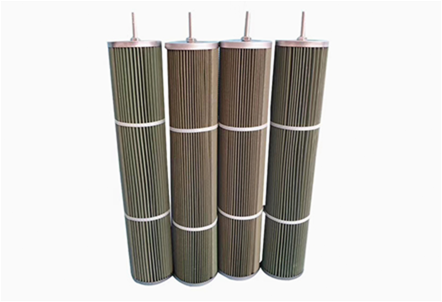 Tel:
+8615930870079
Tel:
+8615930870079
Okt. . 07, 2024 01:36 Back to list
gas turbine air intake filter
Gas Turbine Air Intake Filters Essential Components for Optimal Performance
Gas turbines are a cornerstone of modern energy generation and aviation, celebrated for their efficiency and power output. However, their performance and longevity are heavily influenced by the quality of the air that enters the turbine system. This is where air intake filters play a critical role. These filters are designed to remove contaminants from the ambient air before it reaches the turbine, ensuring optimal operation and protecting sensitive components from damage.
Importance of Air Quality in Gas Turbines
The air used in gas turbines can carry various particulates such as dust, pollen, and smoke that can lead to significant operational issues. Contaminants can cause erosion, corrosion, and fouling of essential turbine parts, including the compressor blades. Such damage not only reduces the turbine's efficiency but can also lead to costly repairs and unplanned downtime. Therefore, maintaining high air quality is crucial for the reliability and efficiency of gas turbines.
Types of Air Intake Filters
There are several types of air intake filters used in gas turbines, each designed for specific applications and environments
. The most common types include1. Panel Filters These are widely used in industrial applications and provide a low resistance to airflow while effectively trapping particulates. They are often made with synthetic fibers and are capable of capturing fine particles.
gas turbine air intake filter

2. V-Bank Filters Designed in a V-shape configuration, these filters have a larger surface area that increases their dust-holding capacity. They are ideal for environments with high levels of airborne contaminants and require less frequent replacement.
3. Mechanical Filters These filters utilize physical barriers to capture particles. They are particularly effective in high humidity environments where other types of filters may struggle.
4. Electrostatic Filters These filters use electrostatic forces to attract and capture particles, enhancing filtration efficiency. They are especially beneficial for industrial gas turbines operating in polluted or dusty conditions.
Maintenance and Replacement
Regular maintenance and timely replacement of air intake filters are essential for ensuring the longevity and efficiency of gas turbines. Monitoring air pressure differentials across filters can help determine when they need to be changed. Neglecting filter maintenance can lead to decreased air intake efficiency, forcing the turbine to work harder and ultimately impacting fuel consumption and overall performance.
Conclusion
In summary, gas turbine air intake filters are vital components that significantly influence the performance and durability of gas turbines. By ensuring that only clean air enters the turbine, these filters help prevent damage to internal components, improve efficiency, and reduce maintenance costs. With advancements in filter technology continuously evolving, industries must keep abreast of the best practices in air filtration to maximize the operational efficiency of their gas turbines. By understanding the importance of air intake filters and investing in their maintenance, operators can enhance the reliability of their gas turbines and secure their investments in energy efficiency and operational excellence.
-
Nano Fiber Technology: Revolutionizing Cartridge Dust Collector FiltersNewsAug.06,2025
-
How Activated Carbon Air Cartridges Eliminate OdorsNewsAug.06,2025
-
Dust Filter Cartridge Handling Fine Particulate MatterNewsAug.06,2025
-
Cartridge Dust Collector Filter for Welding Fume ExtractionNewsAug.06,2025
-
Activated Carbon Filter Cartridge Effectiveness Against VOCsNewsAug.06,2025
-
Activated Carbon Air Filter Cartridge Benefits ExplainedNewsAug.06,2025

 Email:
Email:





